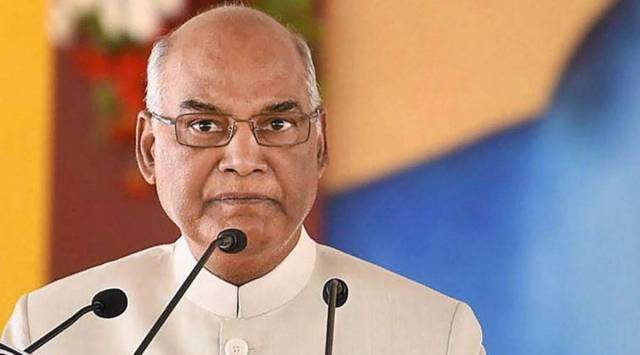‘Lakshadweep development draft against laws that safeguard ecology, livelihood, culture’: 60 scientists write to President, seek intervention
The regulation gives the government powers to choose any plot of land for development, and can override any public opposition. Lakshadweep administration Praful Khoda Patel’s proposal has triggered widespread protests in the islands.
 NEP can become instrumental for India to harness and reap the demographic dividend (File)
NEP can become instrumental for India to harness and reap the demographic dividend (File)As many as 60 scientists, including marine ecologists, marine biologists, wildlife biologists, coral reef ecologists and experts from other fields have written to President Ram Nath Kovind, requesting his intervention to withdraw the Lakshadweep Development Authority Regulation 2021. They said the regulation is in contravention of several existing laws.
The regulation gives the government powers to choose any plot of land for development, and can override any public opposition. Lakshadweep administration Praful Khoda Patel’s proposal has triggered widespread protests in the islands.
In the letter on Wednesday, the Lakshadweep Research Collective said that after a thorough review of the draft, they found it to be in contravention of several existing laws, including the Land Acquisition, Rehabilitation and Resettlement Act, 2013, the Biological Diversity Act 2002, The Environment (Protection) Act, 1986 as well as the recommendations of the Justice Raveendran Committee set up by the Supreme Court.
Lakshadweep is a coral atoll, which means the islands are part of a living coral system.
“Anyone who has lived or worked in Lakshadweep for any length of time will be aware of its special vulnerability… Given how linked land, lagoon and reef are in Lakshadweep, the development envisioned in the draft LDAR would be nothing short of disastrous,” said Rohan Arthur, Senior Scientist, Nature Conservation Foundation.
“The draft Lakshadweep Development Authority Regulation of 2021, is highly problematic and, should it become law, will work against existing legal provisions that safeguard the resilience of Lakshadweep’s ecology, livelihood and culture. It is at odds with the inherent ecological fragility and cultural uniqueness of Lakshadweep, and has been put together with scant regard for its implications for Lakshadweep’s environment and people,” stated the letter.
The letter added that the LDAR ignores a scientific understanding of Lakshadweep’s unique geography, ecology and culture, which place clear limits on the developmental possibilities on island, lagoon and reef. It pointed to the drafting of the regulation without consulting local residents, and violation of international commitments.
“Any further large-scale infrastructural development will have an ecological and social footprint much too large for these islands, lagoons and reefs to sustain and potentially accelerate the rates of decline,” stated the letter.
Coral reef ecologist Dr B Manikandan, who has worked in Lakshadweep since 2001, said “while the government wants to introduce tourism architecture, comparing Lakshadweep to the Maldives would be a mistake”.







